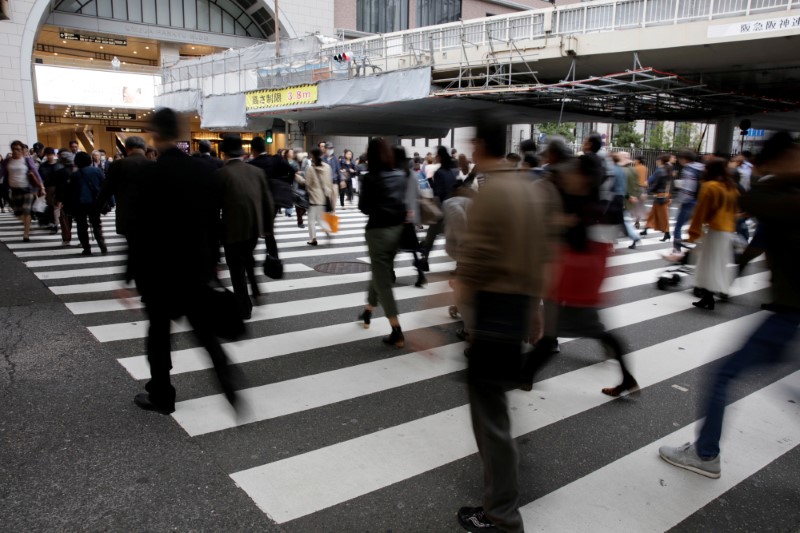Tight job market gives unions extra leverage in wages push

TOKYO (Reuters) — Japan's job market is the tightest it's been in more than 40 years, giving leverage to labour unions pressing for bigger pay hikes at annual wage negotiations and raising prospects for higher consumer spending and inflation.
The employment data along with solid retail figures released on Tuesday were the latest in a string of upbeat numbers on Japan's economy, the world's third-largest, which has been humming along nicely in the past year.
Persistently low inflation remains one of the few irritants for policymakers, though. Prime Minister Shinzo Abe has been urging companies to raise wages three per cent at spring labour talks to spur consumption and lift inflation toward the Bank of Japan's two per cent target.
"The economy has given us a tailwind heading into this year's wage negotiations," said Norishio Hashiguchi, head of wage negotiations at Zenroren, a union for workers at mid-sized firms. "Unions still have to submit their requests and negotiate hard, but I think we can get higher wages."
The jobs-to-applicants ratio rose to 1.59 in December from 1.56, the highest since January 1974, labour ministry data showed. That means there were nearly 1.6 jobs for every applicant.
Retail sales jumped 3.6 per cent in December from a year earlier, separate data showed, beating expectations and the biggest increase since April 2015. Household spending, meanwhile, dipped 0.1 per cent in December from a year earlier.
Japan has notched seven straight quarters of growth, its longest stretch since 1994. Exports are strong, corporate profits are setting records and Japanese stocks are at their highest in 26 years — although they dropped Tuesday.
The bright outlook is welcome news for the BOJ, which has been pump priming the economy with massive stimulus since 2013.
Still, many firms remain very reluctant to commit to a hike in fixed costs like wages. A Reuters survey last month showed that two-thirds of Japanese companies think the government's push to raise wages by three per cent is a tall order, with some dismissing it out of hand.
FOREIGN LABOUR BOOST
The Japanese Trade Union Confederation, also known as Rengo, the country's biggest union, is pushing for a four per cent hike. And the largest business lobby, the Keidanren, has thrown its considerable weight behind the government's campaign to raise wages by three per cent.
Some companies have little choice but to raise wages as they battle to secure workers in the face of the labour shortage.
Data showed that the labor participation rate for men was 83.2 per cent, up 0.6 percentage point from a year earlier. For women, it rose 1.4 points to 68.2 per cent.
To ease the labour shortage, Japan has also been accepting more foreign workers after the government made changes to the way it grants visas for both low- and high-skilled workers.
It introduced a points-based system for high-skilled workers in 2012, expanded length of stay for low-skilled workers on training programs and made it easier to apply for permanent residency.
The number of foreign workers rose to a record 1.3 million in October 2017, separate data from the labour ministry showed.
"One widely overlooked factor driving Japan's growth in recent years has been a surge in the number of foreign workers," Marcel Thieliant, senior Japan economist at Capital Economics said in a research note.
"This appears to be continuing as employers face labor shortages and recent legal changes have made it easier for foreigners to work in the country," he said.
The jobless rate, meanwhile, edged up to 2.8 per cent from 2.7 per cent in November, which was the lowest since November 1993, the Internal Affairs ministry said. The jobless rate rose because people voluntarily left jobs to find better work, an internal affairs ministry official said.
The improving economic outlook has increased expectations that Japan may be able to reach the central bank's 2 percent inflation target. "It's fair to say consumer spending will remain in a gradual recovery trend," said Hiroshi Miyazaki, senior economist at Mitsubishi UFJ Morgan Stanley Securities.




